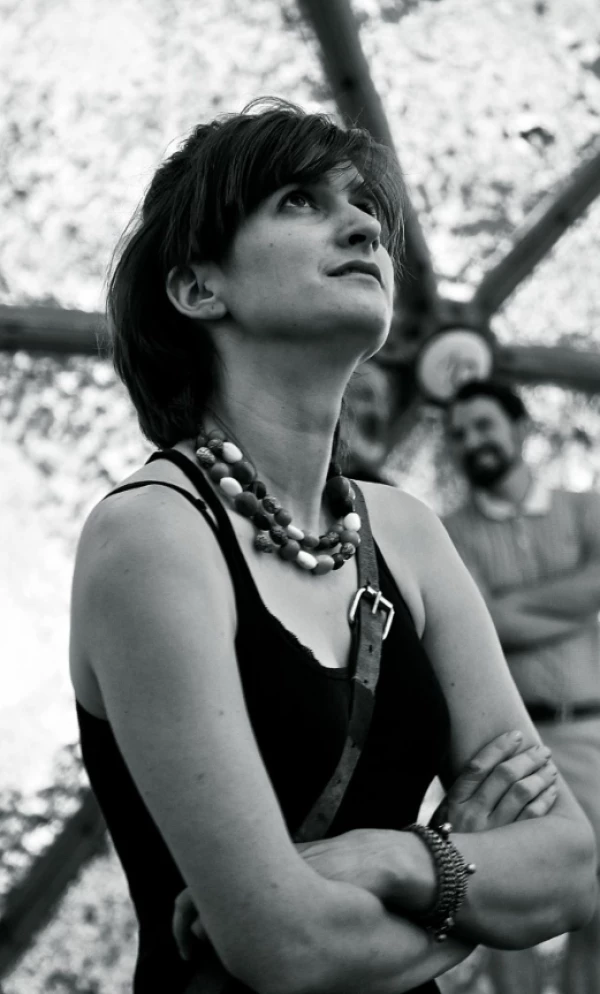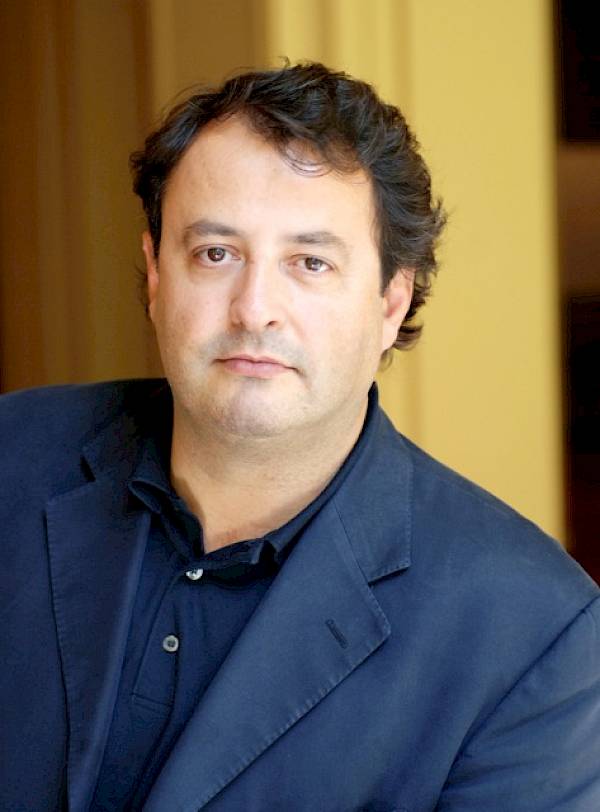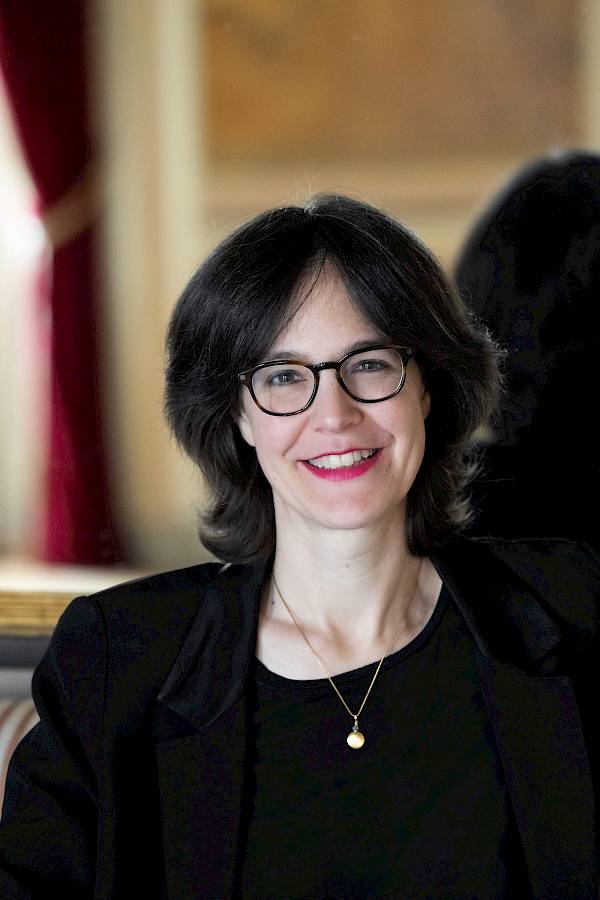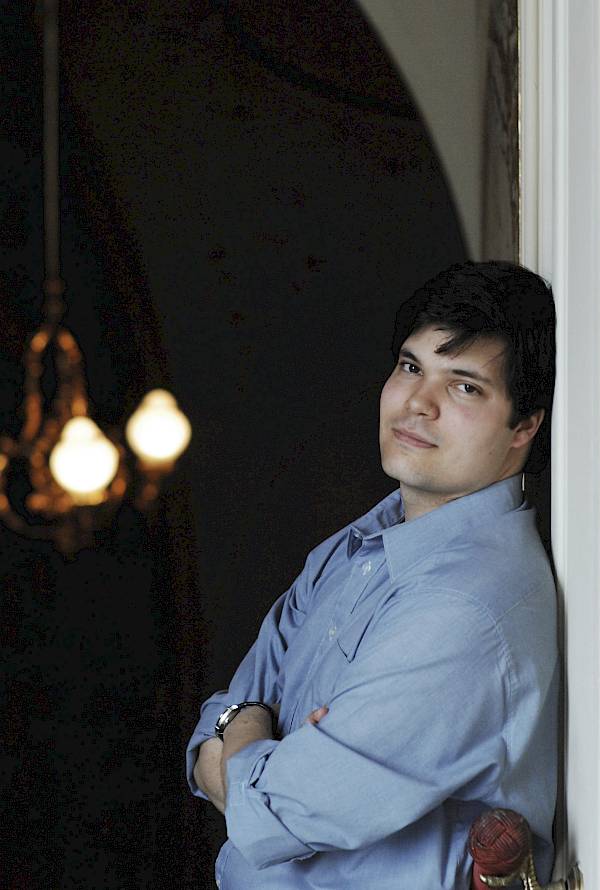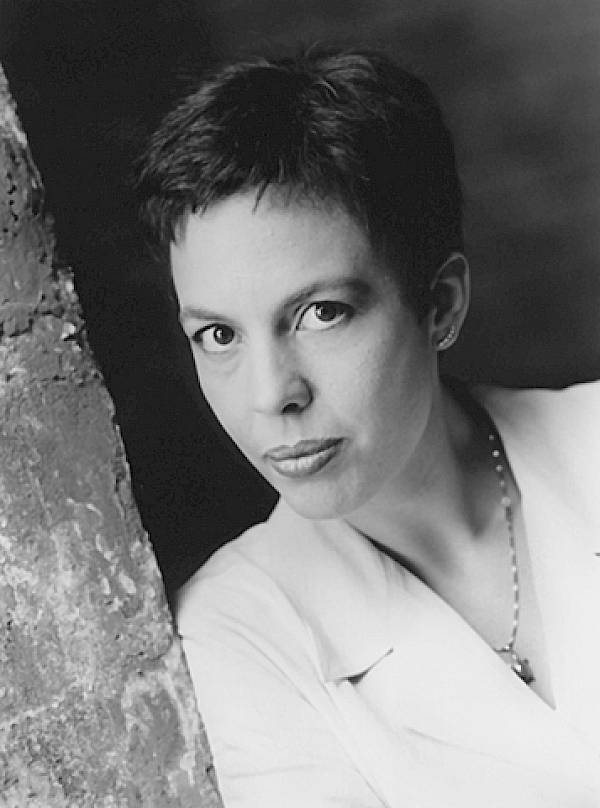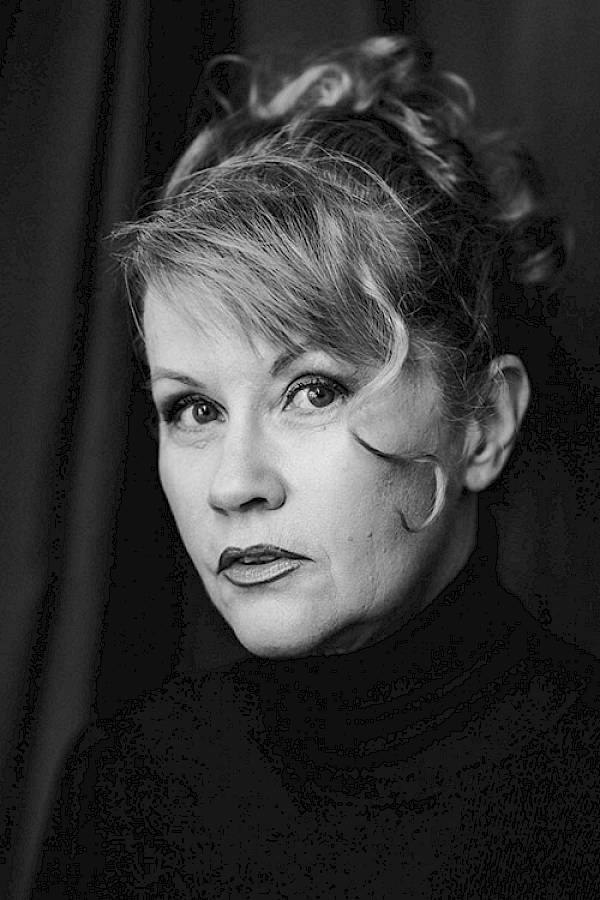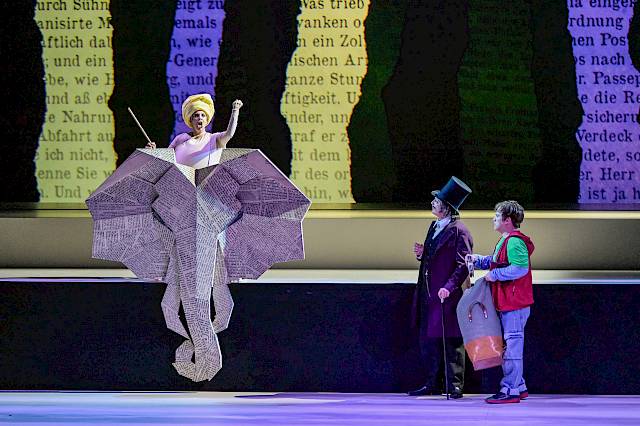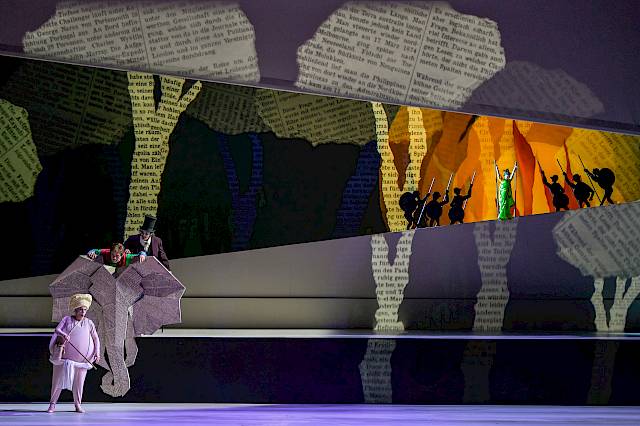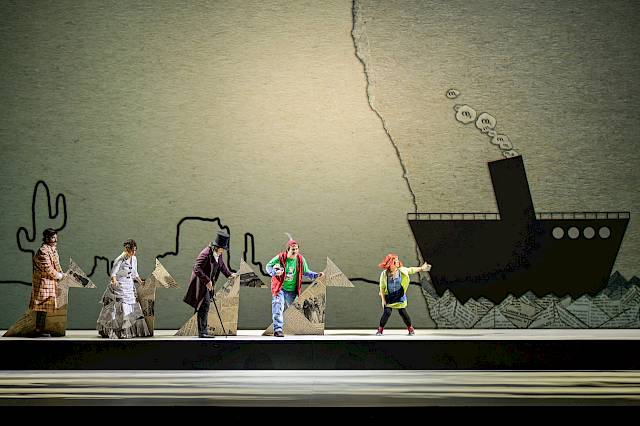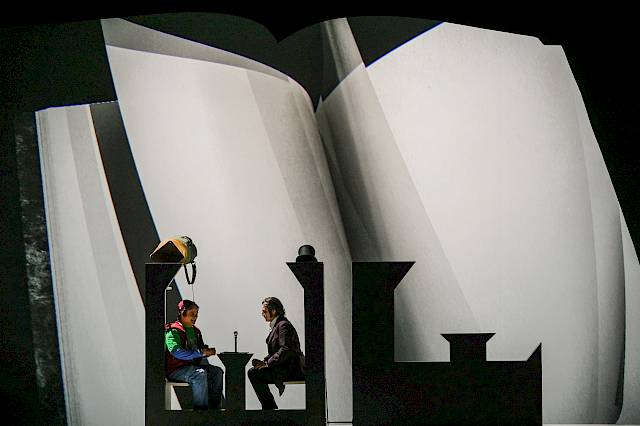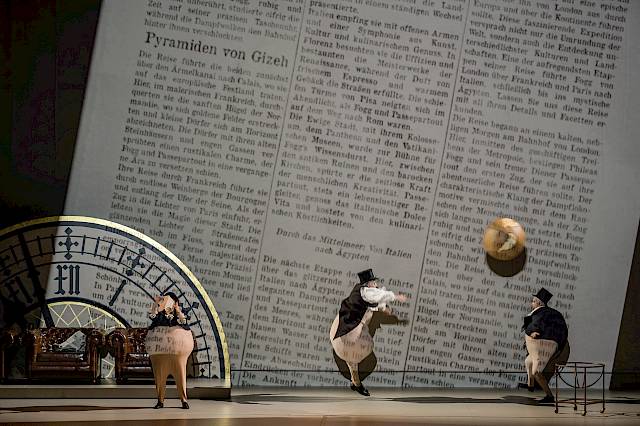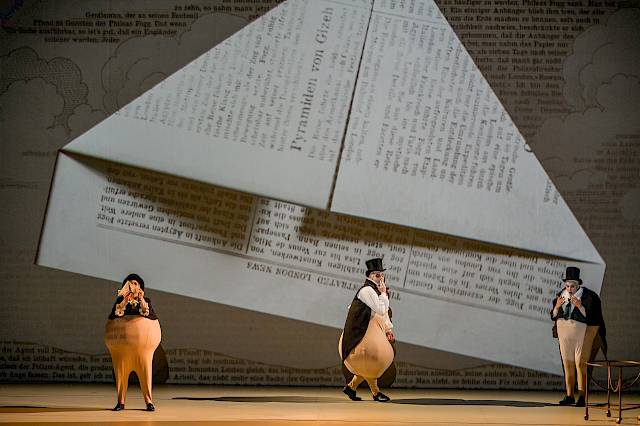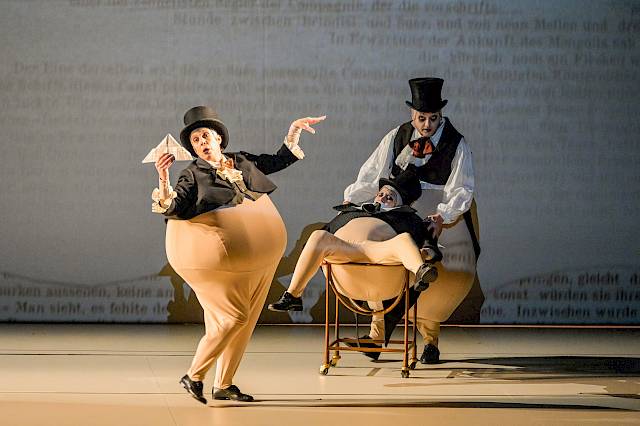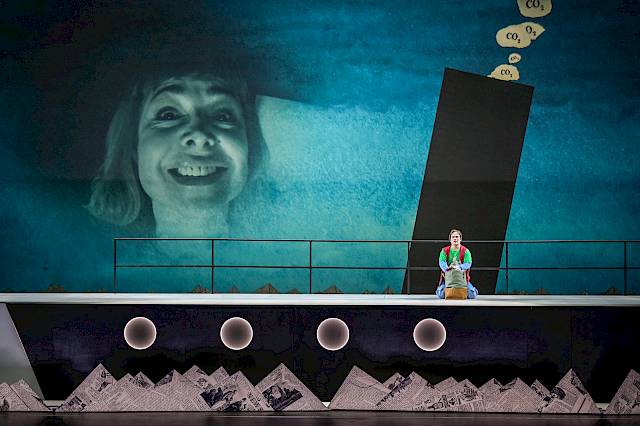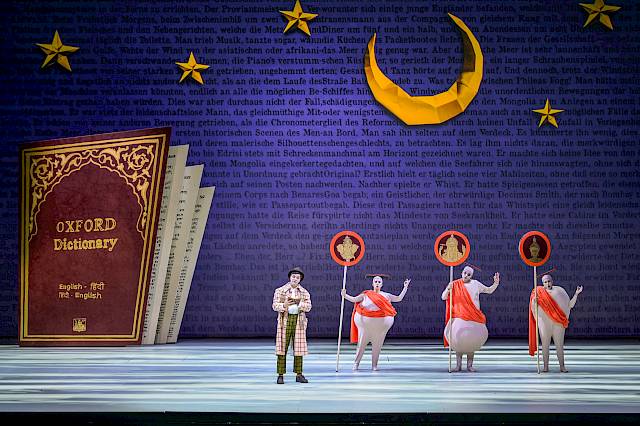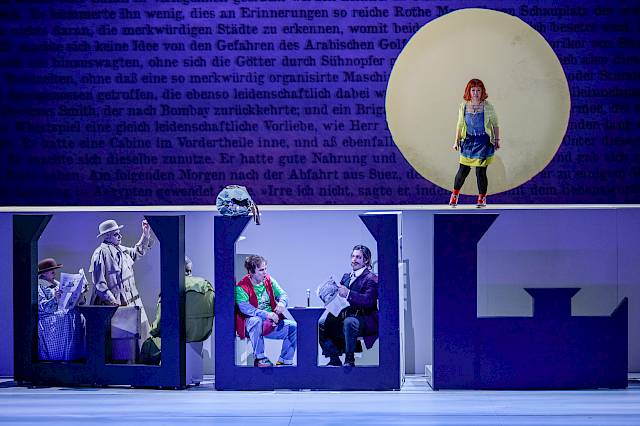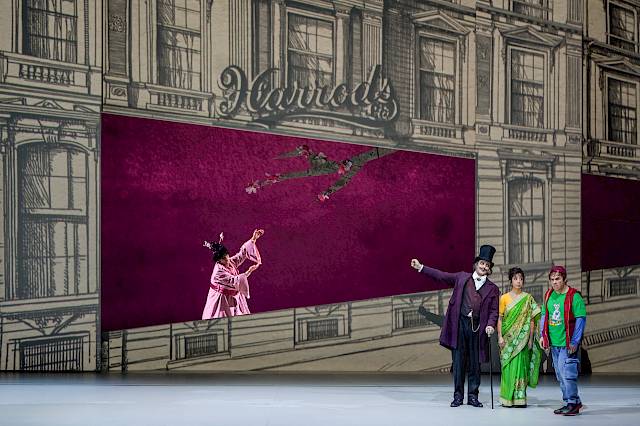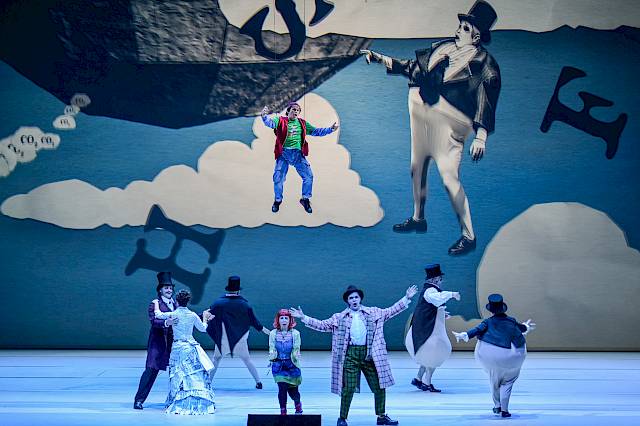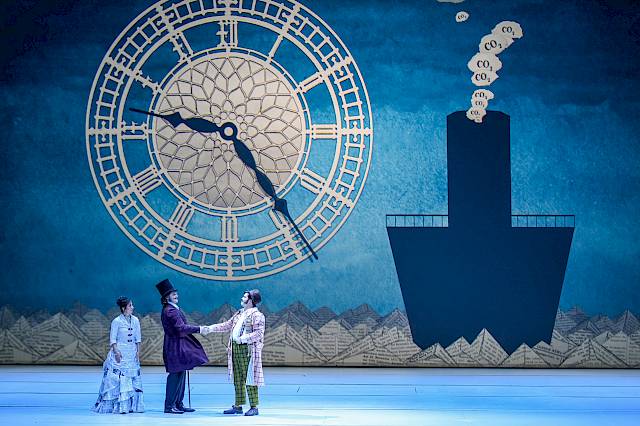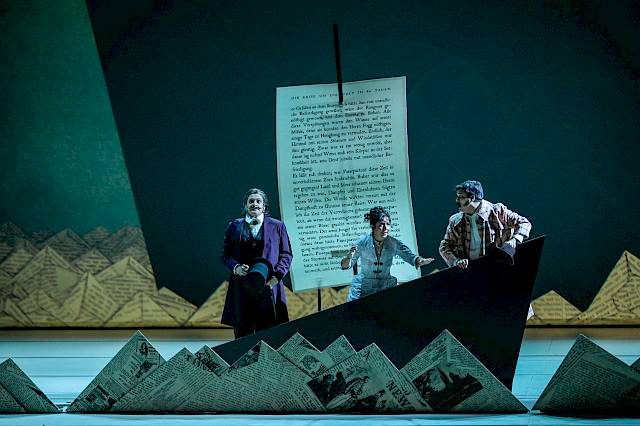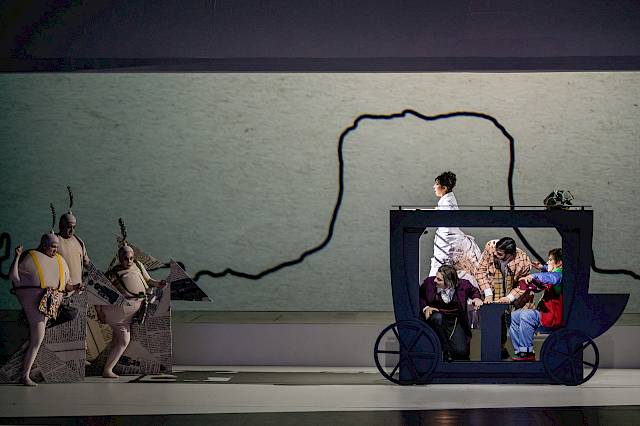Abstract
«Right, the wager’s on!» says the eccentric gentleman Phileas Fogg, and stakes half his fortune on a daring bet. While he’s better known for being a homebody, Fogg wants to circumnavigate the globe in 80 days and make it back to his London friends’ posh Reform Club on time, regardless of possible vehicular damage, train derailments or collisions. Together with his servant Passepartout, he sets off on the journey. They are followed by the English detective Fix, who believes Fogg to be a wanted bank robber. Their itinerary takes them to the pyramids in Egypt, through India to Hong Kong, and from there to America. Traveling by train, ship or on elephants, they experience great adventures, which they overcome with cunning, courage – and a little luck. Along the way, they also meet the Indian beauty Aouda, who accompanies them on their journey around the world.
French author Jules Verne achieved international fame with his novel, which was published in 1873. The book, which has been adapted for the screen many times, is still a popular classic today. With his adventure story, Verne touched something culturally significant, as the achievements of modern technology – fast steamships, railroads, and the newly built Suez Canal – were making the world ever smaller. The novel is based on the true story of the American George Francis Train, who really did circumnavigate the world in 80 days.
This year’s children’s opera was commissioned by the Opernhaus Zürich. British composer Jonathan Dove, whose family opera Das verzauberte Schwein delighted young and old alike at our house a few years ago, was inspired by the story as he created the opera’s lively music. The libretto was written by Peter Lund, who is also the stage director. In his version, we accompany Max, a boy who loves to read, as he suddenly finds himself as a Passepartout in the middle of Verne's travel story.






